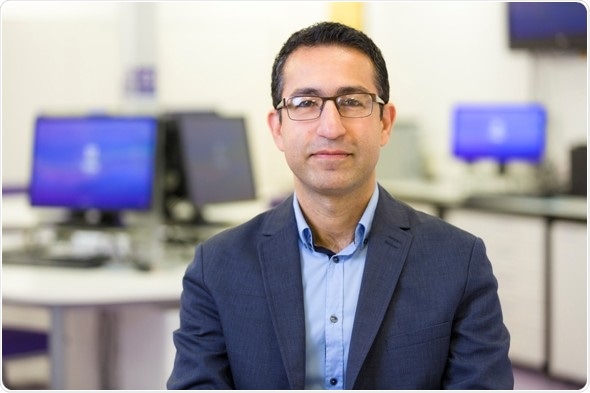Oct 14 2016
A University of Portsmouth scientist has won almost £180,000 to fund research that could help develop treatments for multiple sclerosis (MS) patients.

Dr Sassan Hafizi
Dr Sassan Hafizi, a senior lecturer in the School of Pharmacy and Biomedical Sciences, has been awarded £177,930 by the MS Society to investigate the potentially beneficial role of a molecule found in the nervous system.
In multiple sclerosis – a debilitating neurological condition suffered by an estimated 2.5 million people worldwide – the immune system attacks myelin, a fatty substance that surrounds nerves and protects them from damage.
In the initial stages of MS the body is capable of replacing myelin, which is produced by special cells called oligodendrocytes. But as the condition progresses myelin repair becomes less efficient and damage accumulates, meaning that nerves can’t function properly.
Previous work has revealed that Gas6, a molecule present in the central nervous system, could help to reduce the amount of myelin damage in two ways.
Dr Hafizi believes Gas6 may reduce the immune attack on myelin and the myelin-making oligodendrocytes, and can also promote myelin repair by increasing the number of oligodendrocytes in the central nervous system.
His project will investigate how Gas6 works in mice with a condition similar to MS, and look at ways of targeting Gas6 to boost the natural myelin repair process in the brain.
Dr Hafizi said:
I am delighted that the MS Society has made this substantial award to support my research, which ultimately could help scientists develop new treatments to slow or even stop the worsening of the disability that results from nerve damage.
Currently there are no treatments available to help repair damage caused by MS, which makes this research all the more urgent.
This is the University’s second award from the MS Society within a year. Arthur Butt, Professor of Cellular Neurophysiology at the School of Pharmacy and Biomedical Sciences, won £198,196 last year to fund research into the role of the GSK3 molecule in the formation of the myelin sheath around nerves.
Head of the School of Pharmacy and Biomedical Sciences, Professor Sabbir Ahmed, commented:
This is wonderful news, and a reflection of the exceptional work carried out by our researchers in this highly specialised area.
The award is especially significant as it’s unprecedented for two investigators in the same university – outside the main MS research centres of Edinburgh and Cambridge – to have independently gained funding from the MS Society.